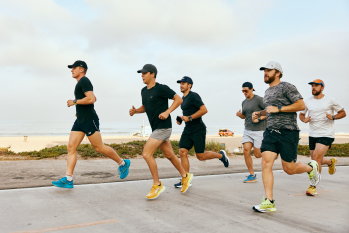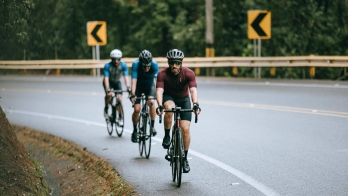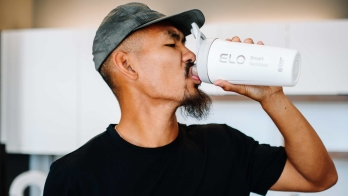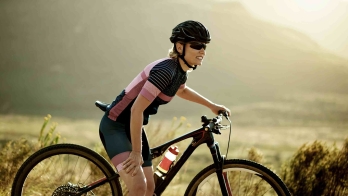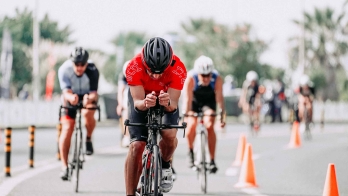Goodbye migraines, hello energy!
Mere mortals would describe a 50 mile mountain bike ride as “epic” whereas software engineer Julie Kanagy, 48, busts out a 120+ mile mountain bike ride “just for fun”. Long, hard rides are a norm for her.
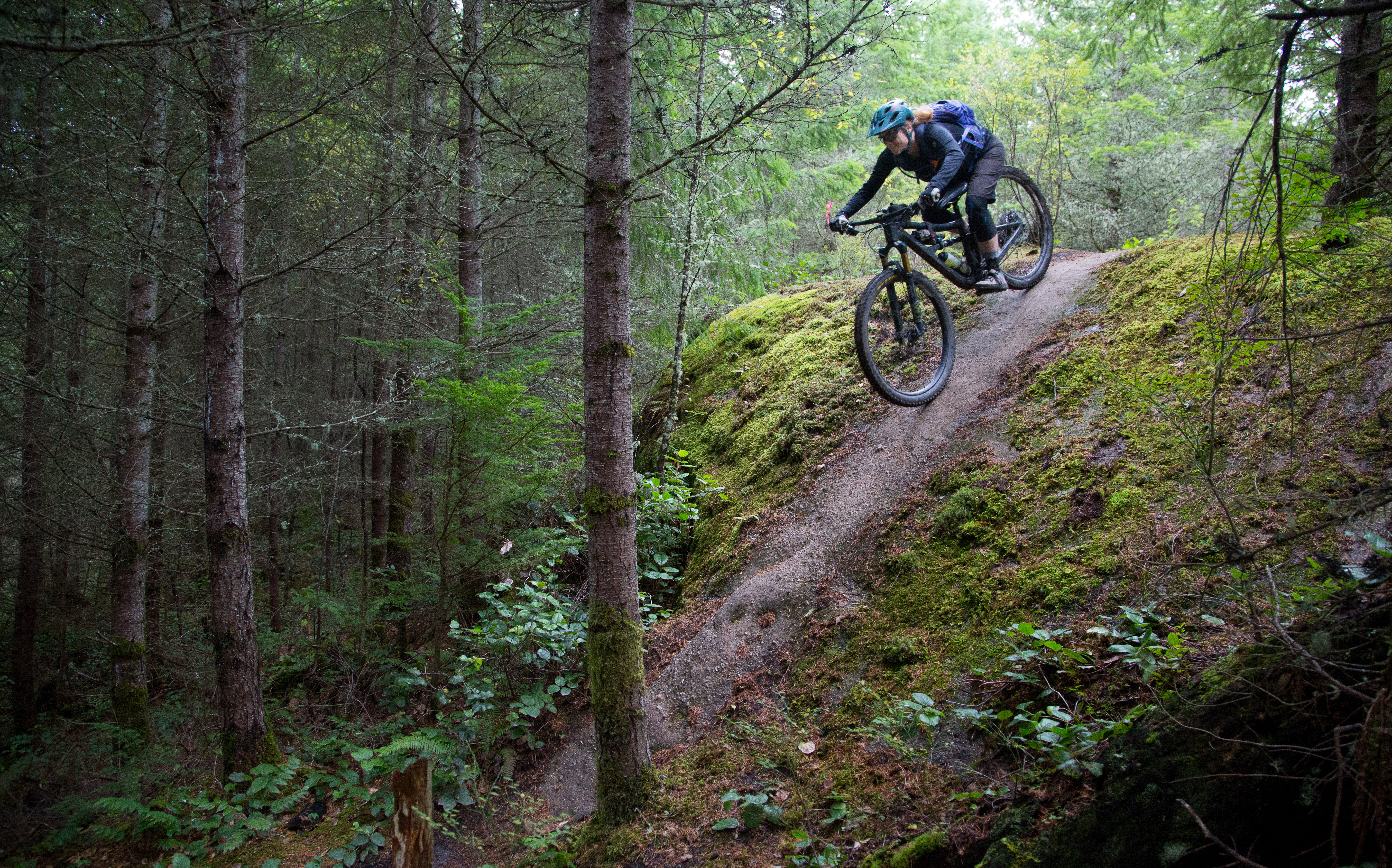
Contents
When did you go vegan and why? What changes did you notice after going vegan? How did it change your cycling performance? What do you typically eat in a day? What supplements, if any, do you take? What do you typically eat on a race day? What are your go-to vegan meals and snacks? What are your favorite vegan products for training and racing? What recommendations do you have for other athletes interested in going vegan?Last year Julie set a course record in the Tour de Los Padres, a 260 mile self-supported bikepacking race out of Santa Barbara. Julie calls herself “an amateur who is still chasing progression” but her results indicate that she’s no novice. A long-time vegan, Julie attributes some of her success to plant-based eating. Here’s her story...
When did you go vegan and why?
My entry into full veganism was very incremental. I’ve been a flexitarian/pescatarian since college. Eating animals at the time was an unresolved ethical dilemma for me, but like most people I ate what was readily available.
In 2006, I finally ditched meat entirely, but continued eating dairy and eggs from time-to-time. I suspected dairy wasn't doing me any favors and in 2013, I completed a 30-day vegan challenge. I discovered that vegan eating was easier and more enjoyable than I thought. That’s when I became aware of the ethical, environmental, and health consequences of eating animal products, and officially became a vegan.
What changes did you notice after going vegan? How did it change your cycling performance?
One unexpected result was that my monthly migraines ceased and never returned. Migraines have a variety of trigger foods and dairy seems to have been the culprit for me.
Performance-wise, I’ve noticed that I am able to train more consistently, I don't get sick very often (if ever) and have plenty of energy on long rides. I’ve also learned much more about nutrition than I did as an omnivore.
What do you typically eat in a day?
Breakfast
A typical workday usually starts with coffee with Laird's Superfood Plant-Based Creamer
Lunch
Lunch can be a sprouted grain tortilla with hummus, a tofu-based veggie burger and lots of veggies, or I'll put the burger on a bed of salad with chickpeas and pumpkin seeds.
Dinner
Dinners are a small scoop of brown rice or quinoa, lots of steamed veggies and some tofu, tempeh or Tofurkey sausage. I use a little Tamari, or make tahini/peanut sauce to go on top. When it's cold out, I'll make lentil soup or bean chili with fresh-baked bread slathered in Earth Balance
What supplements, if any, do you take?
I train a lot so I take a vegan multivitamin from Ritual, and use protein powder. One of my favorites is Cranked Naturals Plant Protein with BCAAs and L-Glutamine
What do you typically eat on a race day?
Before a race
Keeping my stomach happy is critical during long events. I try to eat a little bit less fiber pre-race (hard when you're vegan!). Sushi rice is my new friend for dinner before a race. I top it with edamame, avocado, greens, a sprinkle of tamari and sesame seeds. The morning of a race I have something small and simple, like a Probar and coffee.
During a race
I start fueling 30 minutes into my ride, and aim for 300 calories per hour. I’ve found that this makes a huge difference to my energy levels, especially towards the end of a long event. I use Skratch Superfuel Drink Mix
What are your go-to vegan meals and snacks?
My afternoon snacks usually double as pre-workout fuel so I focus on carbs, plus a little bit of protein. My go-tos include:
Fruit and nuts or nut butter;
Whole grain bagel with hummus and;
Slice of bread with nut butter and jam
As far as meals go, if I’m away from home I often go to Chipotle because they seem to be everywhere in the US! I get the bowl with all of the veggies and guac, plus sofritas.
What are your favorite vegan products for training and racing?
For races, I like Clif Kid Zbars Clif Bloks Skratch Sports Hydration Mix
What recommendations do you have for other athletes interested in going vegan?
I recommend seeing a plant-based sports nutritionist. Make sure you're also having all kinds of legumes, pulses like lentils and peas, and whole, nutrient dense grains such as quinoa, or starchy veggies like sweet potatoes, to get adequate calories. Minimally-processed soy isn’t as bad as it’s reputation suggests and can be a valuable source of iron, calcium and protein. Focus on whole foods, but enjoy a vegan junk food treat now and then. To be sustainable, vegan eating should be nutritious, satisfying and enjoyable.

